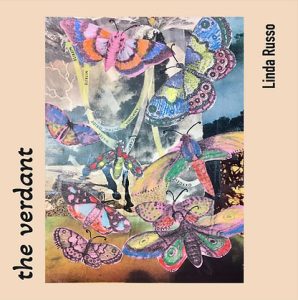Skidrow Penthouse – 2012
Number 13
2012
Annual
David R. Matteri
Skidrow Penthouse’s website assures us that their magazine does not contain homeless people in suggestive poses (sorry to disappoint). They also assure us that their magazine is not “hospitable to eat-shit-shower-and-shave writing, or any kind of literary undertaking that aspires only to disturb the flaccid ghost of Bukowski.” It is a journal that specializes in absurdist literature and art, offering a “home for wayward voices, insect souls, architects of gutter, a place to hide one’s rain.”
Skidrow Penthouse’s website assures us that their magazine does not contain homeless people in suggestive poses (sorry to disappoint). They also assure us that their magazine is not “hospitable to eat-shit-shower-and-shave writing, or any kind of literary undertaking that aspires only to disturb the flaccid ghost of Bukowski.” It is a journal that specializes in absurdist literature and art, offering a “home for wayward voices, insect souls, architects of gutter, a place to hide one’s rain.”
Jody Azzouni offers seven apocalyptic poems in Skidrow’s latest issue. My two favorites are “Oracles for Modern Times” and “When all the Blankets Have Gone to Hell.” Azzouni uses a minimal amount of words to great effect, such as the first four lines of “Oracles”: “Notice there is too much gold / in the air these days. / It is a message from the ozone / that light will soon be acid.” It makes one think twice before getting a suntan. The opening lines of the next poem suggest that it is driving for a light-hearted mood: “We are frozen / (despite our furs). / (Dante would have loved it.)” The lightness then turns black, returning to the theme of humanity’s self-destruction present throughout the rest of Azzouni’s poems: “Let us whistle / (in unison) / our tunes of extinction.” I like Azzouni’s economy of words and look forward to reading more of his work in the future.
Bill Edmondson’s prose poem “Ora and the River” is a visceral work filled with violence and loss. The speaker draws the reader into a town “Named for what it destroyed” (name of town) and reveals an uncomfortable truth about the town’s founding: “The mill hoards the river, but if you were a white man at the turn of the Twentieth Century, what did you care about those damn rapids?” Part travel log of the Midwest and part gruesome history lesson, this piece juxtaposes images of Burger King and Mardi Gras against U.S. militia slaughtering people of the Sauk nation. The main character, Ora, visits the sight of this slaughter and imagines the days leading up to this tragic event: “Ora sees blood. It folds into current, slickens the riverbank.” The killing of the women and children were the hardest parts to read. As Americans, we have an obligation to remember that our country was built on the destruction of the native tribes. Edmondson should be commended for writing such a powerful piece that touches on this truth. We can’t change the past, but literature like this helps pave the way toward tolerance and understanding.
Carolyn Stoloff’s absurd poem “Antipasto” adds a welcomed amount of brevity to this issue. The second half of “Antipasto” is my favorite part because of how she personifies certain letters of the English alphabet:
‘I’ longs to stretch, flex and be U
‘S’ wants to stand straight
and march in the review
‘B’ wants to lie down or lose weight
everyone wants C to stop shouting
at G to quit smoking.
It reads like the script of a Sesame Street episode. There’s also a play on words concerning the head of a particular religious order: “what is the Pope’s appeal / when he’s peeled of his apparel?” Stoloff clearly had a lot of fun writing this poem and is inviting the reader to join her in the pleasure of language.
The speaker in Jim Corey’s “Advance Radar Warning System” offers a list of things to avoid. This list includes people we have all met at some point in our lives, such as liars: “beware the liar, who dwells in gridlock futures & realms of casual daring.” Others are a little harder to define: “beware grudgemeisters’ indelible ink anger hobby hobbling thru life on sharp elbows.” Here’s my favorite item on the list: “beware the talebearer skipping ear to ear w/ picnic baskets of schadenfreude sandwiches.” Sounds tasty. There are wonderful instances of internal rhyming and alliterations in Corey’s piece that deserve to be read out loud. Just remember to “beware the know-it-all & all other supreme beings.”
Issue 13 is dense, coming at you with 281 pages of absurdist literature and art. Every poem, story, piece of artwork is hypnotizing and makes you feel like you’re hopping through the dreams and nightmares of over 70 unique and talented artists. If the absurd is what you need, then Skidrow Penthouse is the journal for you.
[skidrowpenthouse.com]




